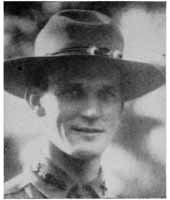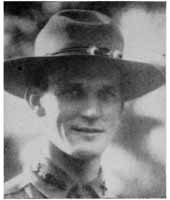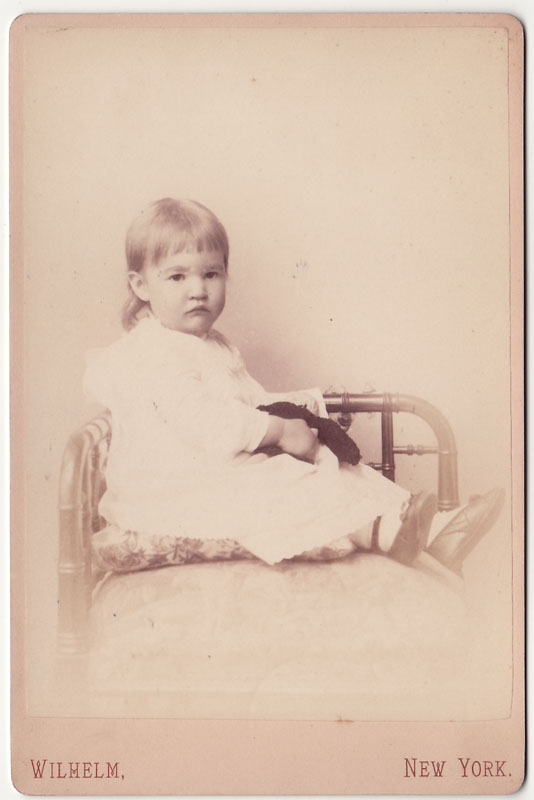Edwin S. Greble Jr. USMA Class of 1909 West Point
Cullum No. 4786-1909 | December 31, 1946 | Died in Washington, DC
Born at Fort Mason, California, November 9, 1887, Ed Greble was the son of Major General Edwin St. J. Greble and Gertrude Poland Greble. and the grandson of Lieutenant John Trout Greble, the first Union officer killed In the Civil War. He was the third of his family in direct line to graduate from West Point. His maternal grandfather, Brigadier General John S. Poland, was also a graduate of the Military Academy. His paternal great-grandfather, Professor John French, was Chaplain and Professor of Ethics at the Academy.
As a cadet Ed took part in practically all undergraduate activities. He was an "A" man In football, captain of the lacrosse team (which sport he helped introduce at West Point), was on the fencing squad and established a new Academy record for the pole vault. He was successively First Corporal, ranking First Sergeant. First Captain, and Quartermaster of the Corps of Cadets. In his first class year he was likewise president of Y.M.C.A. and a hop manager.
Upon graduation Ed joined the Field Artillery, where he kept up his interest in polo, steeplechaslng and flat racing. Soon after being commissioned he volunteered for flying duly and was one of the first ten men in the then newly formed Aviation Section. He had reached the solo stage when his father intervened and had him transferred to other duty. To his dying day the General would say, "Sonny, I saved your life", and Ed would reply "Dad, you ruined my career", whereupon they would both smile.
Ed was a junior aide to both President Taft and President Wilson. When World War I broke out he was a Field Artillery Observer with the French Army. Reporting to our Embassy in Paris, he was given many difficult tasks by Ambassador Herrick, who stated later that he relied implicitly on Ed's ability. On his return to the United States he resigned from the Army and took charge of building the proving ground at Lakehurst, N. J., for the Baldwin Locomotive Works. Later he organized a large guard for the protection of the Baldwin plant at Eddystone, Pa. At that time a large Russian ammunition order was being filled. Several attempts to blow up the pellet room were circumvented but finally one was successful. One hundred and twenty-four people were killed. Ed helped in the rescue of girl workers pinned under the fallen walls of the burning building.
Upon our entry Into World War I Ed re-entered the service and was made a major in the 108th Field Artillery. He recruited this National Guard unit to full strength and later became its colonel. During the Meuse-Argonne offensive he was injured in action by an exploding mine which killed several of his men. Toward the end of the war he was transferred to the command of the 76th Field Artillery and remained for some time in the Army of Occupation.
Again returning to civil life Ed became the manager of the Baldwin Locomotive Works for Southeastern Europe. He established headquarters in Bucharest and evolved an acceptable method of exchanging locomotives for oil. In Yugoslavia he bartered locomotives for grain and proposed to take wine for payment in Russia. While in Bucharest he founded a country club.
After six years in Romania, Ed returned to the United States in 1925. He accepted a position with a development company at Fort Lauderdale, Florida, but the collapse of the Florida land boom put an end to that enterprise. He next worked on a road building project in North Carolina and then declined an offer to go to Mexico on a large road job. He was next employed by Thomas A. Edison in West Orange, New Jersey, looking over idle inventions to see how they could be turned to commercial use. Among these he selected electrical recording, conceiving the idea of on-the-spot recording of public events. In 1927 he tried the experiment at St. George's Church in New York, recording the singing of the choir. This record was transmitted from station WOR and marked a forward step in radio broadcasting.
Leaving the Edison Company, Ed became Executive Assistant to Mr. Loren F. Loree, President of the Delaware and Hudson Railroad Company. During this period he interested himself in local politics in West Orange. Here he had bought a home for himself, his wife (the former Florence Colgate) and his three children, Edwin St. John, 3d, Florence Colgate and William Estes. Feeling strongly that an informed electorate was essential to clean politics, he was able to arouse much local enthusiasm and was building a wide awake Republican Club when he became very ill and had to drop all his activities.
When partially recovered from his illness Ed worked on a trailer development for military command posts. One of his models was submitted to the Army and passed all tests, but received scant recognition. Always, full of ideas and energy, but with a lessening ability to cope with circumstances because of illness, he grew to see only his failures, and these thoughts preyed on his mind, undermining his natural balance and permanently injuring his health.
In 1934 Ed was divorced and the latter years of his life were filled with great tragedy.
In 1941 his daughter died and early during the war his youngest son, who was a pilot in the 8th Air Force, was killed in action over Germany.
One son, Doctor Edwin St. J. Greble, III, was graduated from Jefferson Medical College. There are two young grandsons, Edwin Greble and William Estes Greble, to carry on the name.
In November 1946 Ed suffered a severe heart attack and on New Year's eve he died. The end came swiftly and mercifully. Ed is at peace at last and lies beside his father In the National Cemetery at Arlington.
____________________________________________________________
Edwin St. John Greble, Jr., the son of Edwin St. John Greble, Major General, United States Army, was appointed to the United States Military Academy from California and graduated in the class of 1909. He served in World War I.
The Colonel died at Washington, D.C. on 31 December 1946 and was buried with full military honors in Arlington National Cemetery.
On graduation he was assigned to the Field Artillery. He resigned his commission as a First Lieutenant in 1916. He served as Commanding Officer of the 108th Field Artillery and the 76th Field Artillery, 3rd Division, American Expeditionary Forces as a Colonel. He was honorably discharged in 1919.
COLONEL EDWIN GREBLE JR.
Retired Officer A Commander Of Artillery In 1st World War
WASHINGTON, January 1, 1947 - A funeral service for Colonel Edwin St. John Greble Jr., one time president of the West Orange (New Jersey) Republican Club, will be held tomorrow at 3:30 P.M. in the Chapel of Arlington National Cemetery. Colonel Greble, the son of Mrs. Gertrude Poland Greble and the late Major General Edwin St. John Greble, died Tuesday in Emergency Hospital here of a heart ailment.
In retirement for the past few years, Colonel Greble was formerly as executive of the Delaware & Hudson Railroad and the Rumanian representative of the Baldwin Locomotive Works.
He was graduated from the United States Military Academy in 1909, after which he became a military attaché at the White House. He commanded an Artillery Regiment in the first World War.
GREBLE, EDWIN S JR
COL FIELD ARTY US ARMY
DATE OF DEATH: 12/31/1946
BURIED AT: SECTION SOUTH SITE 1892-A
ARLINGTON NATIONAL CEMETERY
∼
Col. Goeble of Rockville, Maryland, died in Emergency Hospital where he had been a medical patient for several days. He graduated from the United States Military Academy at West Point in 1909. During World War I he commanded the 109th Regiment of the 28th Division. Survivors: mother Mrs. Edwin St. John Goeble who lives that Hotel Bethlehem, Bethlehem, Pa.; son Dr. Edwin Goeble III., U.S. Naval Reserve stationed at San Diego; two sisters, Mrs. W.L. Weiss, Jr., of Bethlehem and Mrs. Thomas Davis of New York City. Col. Goeble was predeceased by his father, Maj. Gen. Edwin St. John Goeble and a son, Lt. William Estes Goeble, U.S. Army Air Corps who was killed during World War II while on a mission over Germany.
Edwin S. Greble Jr. USMA Class of 1909 West Point
Cullum No. 4786-1909 | December 31, 1946 | Died in Washington, DC
Born at Fort Mason, California, November 9, 1887, Ed Greble was the son of Major General Edwin St. J. Greble and Gertrude Poland Greble. and the grandson of Lieutenant John Trout Greble, the first Union officer killed In the Civil War. He was the third of his family in direct line to graduate from West Point. His maternal grandfather, Brigadier General John S. Poland, was also a graduate of the Military Academy. His paternal great-grandfather, Professor John French, was Chaplain and Professor of Ethics at the Academy.
As a cadet Ed took part in practically all undergraduate activities. He was an "A" man In football, captain of the lacrosse team (which sport he helped introduce at West Point), was on the fencing squad and established a new Academy record for the pole vault. He was successively First Corporal, ranking First Sergeant. First Captain, and Quartermaster of the Corps of Cadets. In his first class year he was likewise president of Y.M.C.A. and a hop manager.
Upon graduation Ed joined the Field Artillery, where he kept up his interest in polo, steeplechaslng and flat racing. Soon after being commissioned he volunteered for flying duly and was one of the first ten men in the then newly formed Aviation Section. He had reached the solo stage when his father intervened and had him transferred to other duty. To his dying day the General would say, "Sonny, I saved your life", and Ed would reply "Dad, you ruined my career", whereupon they would both smile.
Ed was a junior aide to both President Taft and President Wilson. When World War I broke out he was a Field Artillery Observer with the French Army. Reporting to our Embassy in Paris, he was given many difficult tasks by Ambassador Herrick, who stated later that he relied implicitly on Ed's ability. On his return to the United States he resigned from the Army and took charge of building the proving ground at Lakehurst, N. J., for the Baldwin Locomotive Works. Later he organized a large guard for the protection of the Baldwin plant at Eddystone, Pa. At that time a large Russian ammunition order was being filled. Several attempts to blow up the pellet room were circumvented but finally one was successful. One hundred and twenty-four people were killed. Ed helped in the rescue of girl workers pinned under the fallen walls of the burning building.
Upon our entry Into World War I Ed re-entered the service and was made a major in the 108th Field Artillery. He recruited this National Guard unit to full strength and later became its colonel. During the Meuse-Argonne offensive he was injured in action by an exploding mine which killed several of his men. Toward the end of the war he was transferred to the command of the 76th Field Artillery and remained for some time in the Army of Occupation.
Again returning to civil life Ed became the manager of the Baldwin Locomotive Works for Southeastern Europe. He established headquarters in Bucharest and evolved an acceptable method of exchanging locomotives for oil. In Yugoslavia he bartered locomotives for grain and proposed to take wine for payment in Russia. While in Bucharest he founded a country club.
After six years in Romania, Ed returned to the United States in 1925. He accepted a position with a development company at Fort Lauderdale, Florida, but the collapse of the Florida land boom put an end to that enterprise. He next worked on a road building project in North Carolina and then declined an offer to go to Mexico on a large road job. He was next employed by Thomas A. Edison in West Orange, New Jersey, looking over idle inventions to see how they could be turned to commercial use. Among these he selected electrical recording, conceiving the idea of on-the-spot recording of public events. In 1927 he tried the experiment at St. George's Church in New York, recording the singing of the choir. This record was transmitted from station WOR and marked a forward step in radio broadcasting.
Leaving the Edison Company, Ed became Executive Assistant to Mr. Loren F. Loree, President of the Delaware and Hudson Railroad Company. During this period he interested himself in local politics in West Orange. Here he had bought a home for himself, his wife (the former Florence Colgate) and his three children, Edwin St. John, 3d, Florence Colgate and William Estes. Feeling strongly that an informed electorate was essential to clean politics, he was able to arouse much local enthusiasm and was building a wide awake Republican Club when he became very ill and had to drop all his activities.
When partially recovered from his illness Ed worked on a trailer development for military command posts. One of his models was submitted to the Army and passed all tests, but received scant recognition. Always, full of ideas and energy, but with a lessening ability to cope with circumstances because of illness, he grew to see only his failures, and these thoughts preyed on his mind, undermining his natural balance and permanently injuring his health.
In 1934 Ed was divorced and the latter years of his life were filled with great tragedy.
In 1941 his daughter died and early during the war his youngest son, who was a pilot in the 8th Air Force, was killed in action over Germany.
One son, Doctor Edwin St. J. Greble, III, was graduated from Jefferson Medical College. There are two young grandsons, Edwin Greble and William Estes Greble, to carry on the name.
In November 1946 Ed suffered a severe heart attack and on New Year's eve he died. The end came swiftly and mercifully. Ed is at peace at last and lies beside his father In the National Cemetery at Arlington.
____________________________________________________________
Edwin St. John Greble, Jr., the son of Edwin St. John Greble, Major General, United States Army, was appointed to the United States Military Academy from California and graduated in the class of 1909. He served in World War I.
The Colonel died at Washington, D.C. on 31 December 1946 and was buried with full military honors in Arlington National Cemetery.
On graduation he was assigned to the Field Artillery. He resigned his commission as a First Lieutenant in 1916. He served as Commanding Officer of the 108th Field Artillery and the 76th Field Artillery, 3rd Division, American Expeditionary Forces as a Colonel. He was honorably discharged in 1919.
COLONEL EDWIN GREBLE JR.
Retired Officer A Commander Of Artillery In 1st World War
WASHINGTON, January 1, 1947 - A funeral service for Colonel Edwin St. John Greble Jr., one time president of the West Orange (New Jersey) Republican Club, will be held tomorrow at 3:30 P.M. in the Chapel of Arlington National Cemetery. Colonel Greble, the son of Mrs. Gertrude Poland Greble and the late Major General Edwin St. John Greble, died Tuesday in Emergency Hospital here of a heart ailment.
In retirement for the past few years, Colonel Greble was formerly as executive of the Delaware & Hudson Railroad and the Rumanian representative of the Baldwin Locomotive Works.
He was graduated from the United States Military Academy in 1909, after which he became a military attaché at the White House. He commanded an Artillery Regiment in the first World War.
GREBLE, EDWIN S JR
COL FIELD ARTY US ARMY
DATE OF DEATH: 12/31/1946
BURIED AT: SECTION SOUTH SITE 1892-A
ARLINGTON NATIONAL CEMETERY
∼
Col. Goeble of Rockville, Maryland, died in Emergency Hospital where he had been a medical patient for several days. He graduated from the United States Military Academy at West Point in 1909. During World War I he commanded the 109th Regiment of the 28th Division. Survivors: mother Mrs. Edwin St. John Goeble who lives that Hotel Bethlehem, Bethlehem, Pa.; son Dr. Edwin Goeble III., U.S. Naval Reserve stationed at San Diego; two sisters, Mrs. W.L. Weiss, Jr., of Bethlehem and Mrs. Thomas Davis of New York City. Col. Goeble was predeceased by his father, Maj. Gen. Edwin St. John Goeble and a son, Lt. William Estes Goeble, U.S. Army Air Corps who was killed during World War II while on a mission over Germany.
Family Members
Sponsored by Ancestry
Advertisement
Records on Ancestry
Advertisement
















